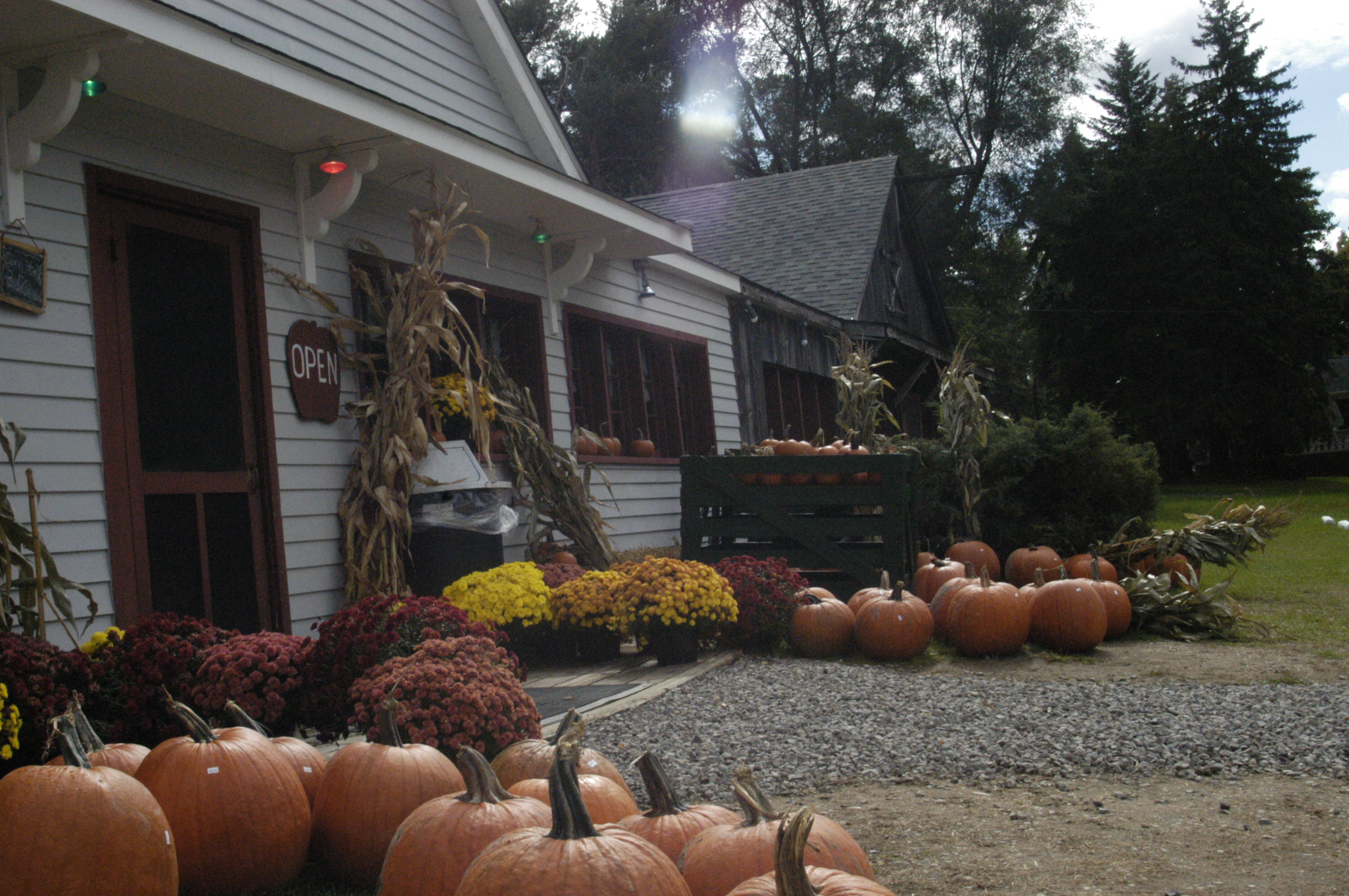
Local produce displayed at the Rochester Cider Mill in Rochester. Photo by Emily Lawler, Capital News Service
By EMILY LAWLER
Capital News Service
Lansing—Wine tasting, cider sipping and berry picking.
Many Michigan residents participate in these and similar activities unaware that they are supporting a growing industry called agritourism.
Tourism and agriculture are two of Michigan’s largest industries, and their intersection is growing.
Agritourism is a $23 million-a-year industry in Michigan — and there are 645 farms with tourism components, according to Jeanne Hausler, agricultural tourism program manager for the Department of Agriculture
A more recent survey hasn’t been released, but experts say those numbers are probably higher now.
“We’ve definitely seen a growth of interest in agritourism in the past few years,” said Kirsten Borgstrom, media relations manager for Travel Michigan, the state’s tourism promotion agency.
Reps. John Espinoza, D-Croswell, Terry Brown, D-Pigeon, and Lesia Liss, D-Warren, have proposed amending the Michigan Right to Farm Act to include agritourism.
According to Espinoza, the measure would help existing agricultural tourism businesses stay in business. If they participate in the program, they would be treated more like a farm than a business under state tax law.
“There are obvious tax breaks that would become available,” said Espinoza.
It’s also thought that such tax breaks would encourage more farmers to branch into tourism.
Liss said, “My main reason for sponsoring the bill is that agritourism is good public policy and will open up a revenue stream for Michigan’s economy.”
Karel Bush, promotion specialist for the Michigan Grape and Wine Industry Council, says the public is more interested in agritourism because of a growing interest in local produce.
“People are especially interested in finding their food source close to them. They’re also looking for tourism closer to home,” said Bush.
The current economic situation may be one reason people are looking to vacation in-state.
“Many Michigan travelers are Michigan residents, so an economic downturn affects tourism,” said Borgstrom.
However, she said Travel Michigan is promoting tourism and agritourism with commercials targeted to out-of-staters. For example, a harvest-themed commercial is airing now, and a “fresh” commercial focusing on agritourism will be out in the spring.
“We have seen a rise in out-of-state tourists this year,” said Borgstrom. “I’d definitely say Michigan is a top destination for agricultural tourism.”
Shannon Springer, communications and membership director for the West Michigan Tourist Association in Grand Rapids, said it’s a growing part of the industry. “And we’re always looking for ways to highlight it and bring it to the public.”
Michigan’s wine industry is an important agricultural feature. Currently 66 wineries use Michigan fruit, according to Bush.
“We are a cooler state, so the wines that they make are very different. You’re not going to be able to find them anywhere else.”
For many farmers who cater to tourists, tourism is the mainstay of their income.
Teusink’s Pony Farm in Holland introduces elementary school groups to farm animals and offers activities like hayrides, sleigh rides and a petting zoo for the public.
“Tourism is primarily our main source of income,” said owner Larry Teusink.
The farm has been in the family for more than 100 years, he said. His ancestors started giving sleigh rides as early as the 1930s, and he turned the tourism part of his farm into a full-time job in the 1970s. The crop-growing aspect of the farm isn’t for income, he added.
“Anything we produce is just food for our animals,” said Teusink. “We have just about any animal you’d ever see on a farm.”
Some wineries also rely on the tourism part of their business more than any product they sell elsewhere, Bush said.
“Some of the smaller wineries sell nearly all of their wine through their tasting room. They are very dependent on getting people to their door,” said Bush.
One thing that separates agritourism from regular tourism — and sometimes puts it at a disadvantage — is that it is dependent on crops.
According to Bush, anything from an early frost to not enough rainfall can hurt the taste of grapes, and a bad season can mean a bad tourist season as well. In some cases, wineries buy grapes from another region, but some don’t have that option.
And Springer says “Weather plays a part in everything when it comes to tourism.”
© 2009, Capital News Service, Michigan State University School of Journalism. Not to be reproduced without permission.